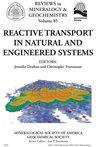地球物质结构与光谱学的理论方法
1区 地球科学
Q1 Earth and Planetary Sciences
引用次数: 44
摘要
复杂材料的结构、电子、磁性、振动、热力学或其他物理和化学性质的表征通常是一项具有挑战性的任务,需要结合许多互补的技术。实验方法,如衍射或光谱方法,通常提供所研究材料的指纹信息。测量数据的解释是通过参考模拟材料或通过构建适合实验数据的理论(例如,结构)模型来完成的。对于后者,近年来计算方法已经变得非常强大。例如,粉末衍射数据的Rietveld细化或各种光谱的曲线拟合现在是常规的基础。硬件性能的持续改进导致计算能力以每十年约1000倍的速度大幅增长,以及先进的算法和代码为从头开始预测材料特性的建模提供了基础,即使用密度泛函理论(DFT)等量子化学方法从第一原理开始。下地幔主要矿物MgSiO3钙钛矿和后钙钛矿、镁长石(MgO)和CaSiO3钙钛矿在零温度下、在从过渡带到核幔边界的相关压力范围内的DFT焓预测可以在办公室PC上几个小时内完成。在有限温度下使用(准)谐波近似的晶格振动模式计算这些相的自由能最多需要几天。用铁取代固溶体中一些Mg原子的这些地幔矿物的更真实的组成在计算上要求更高,但也已经可以实现。这同样适用于无序相的结构研究,如玻璃、熔体和流体。第一性原理和经典分子动力学模拟对于无序结构的统计显著抽样都是有用的方法。…本文章由计算机程序翻译,如有差异,请以英文原文为准。
Theoretical Approaches to Structure and Spectroscopy of Earth Materials
The characterization of complex materials in terms of their structure, electronic, magnetic, vibrational, thermodynamic or other physical and chemical properties is often a challenging task that requires the combination of a number of complementary techniques. Experimental approaches such as diffraction or spectroscopic methods usually provide fingerprint information about the material under investigation. The interpretation of measured data is either done by reference to analogue materials or by constructing a theoretical (e.g., structural) model that fits the experimental data. For the latter, computational methods have become very powerful in recent years. For example, Rietveld refinement of powder diffraction data or curve fitting of various spectra is now done on a routine basis. The continuous improvement in hardware performance resulting in a huge and progressive increase of computing power by a factor of ~1000 per decade, as well as advanced algorithms and codes provide the basis for predictive modeling of material properties ab initio , i.e., from first principles using quantum chemical methods such as density functional theory (DFT). DFT enthalpy predictions for the major lower mantle minerals, MgSiO3 perovskite and post-perovskite, periclase (MgO) and CaSiO3 perovskite at zero temperature, over the relevant pressure range from the transition zone to the core-mantle boundary can be made in a few hours on an office PC. Free energy calculations for these phases at finite temperatures using lattice vibrational modes in the (quasi-)harmonic approximation require at most a couple of days. More realistic compositions of these mantle minerals with Fe substituting some of the Mg atoms in a solid solution are computationally more demanding but have also become accessible. The same is true for structural investigations of disordered phases, such as glasses, melts and fluids. Both first-principles and classical molecular dynamics simulations are useful methods for a statistically significant sampling of disordered structures. …
求助全文
通过发布文献求助,成功后即可免费获取论文全文。
去求助
来源期刊

Reviews in Mineralogy & Geochemistry
地学-地球化学与地球物理
CiteScore
8.30
自引率
0.00%
发文量
39
期刊介绍:
RiMG is a series of multi-authored, soft-bound volumes containing concise reviews of the literature and advances in theoretical and/or applied mineralogy, crystallography, petrology, and geochemistry. The content of each volume consists of fully developed text which can be used for self-study, research, or as a text-book for graduate-level courses. RiMG volumes are typically produced in conjunction with a short course but can also be published without a short course. The series is jointly published by the Mineralogical Society of America (MSA) and the Geochemical Society.
 求助内容:
求助内容: 应助结果提醒方式:
应助结果提醒方式:


